-
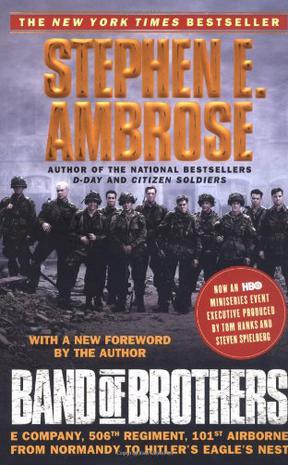
Band of Brothers
在线阅读本书 Through soldiers' journals and letters, describes Easy Company's contributions to the campaigns in western Europe and recounts their stories of survival. Amazon.co.uk Review As grippingly as any novelist, preeminent World War II historian Stephen Ambrose uses Band of Brothers to tell the horrifying, hallucinatory saga of Easy Company, whose 147 members he calls the nonpareil combat paratroopers on earth circa 1941-45. Ambrose takes us along on Easy Company's trip from gruelling basic training to Utah Beach on D-day, where a dozen of them turned German cannons into dynamited ruins resembling "half-peeled bananas", on to the Battle of the Bulge, the liberation of part of the Dachau concentration camp, and a large party at Hitler's "Eagle's Nest", where they drank the his (surprisingly inferior) champagne. Of Ambrose's main sources, three soldiers became rich civilians; at least eight became teachers; one became Albert Speer's jailer; one prosecuted Robert Kennedy's assassin; another became a mountain recluse; the despised, sadistic CO who first trained Easy Company (and to whose strictness many soldiers attributed their survival of the war) wound up a suicidal loner whose own sons skipped his funeral. The Easy Company survivors describe the hell and confusion of any war: the senseless death of the nicest kid in the company when a souvenir Luger goes off in his pocket; the execution of a GI by his CO for disobeying an order not to get drunk. Despite the gratuitous horrors it relates, Band of Brothers illustrates what one of Ambrose's sources calls "the secret attractions of war ... the delight in comradeship, the delight in destruction ... war as spectacle". --Tim Appelo Amazon.com Audibook Review The men of E Company, 506th Regiment, 101st Airborne, volunteered for this elite fighting force because they wanted to be the best in the army--and avoid fighting alongside unmotivated, out-of-shape draftees. The price they paid for that desire was long, arduous, and sometimes sadistic training, followed by some of the most horrific battles of World War II. Actor Cotter Smith--a veteran of numerous TV movies and Broadway plays--spins Stephen Ambrose's tale with almost laconic ease. Anecdote by anecdote, he lets the power of the story build. By the time the company has gotten through D-day and seized Hitler's Eagle's Nest in Bavaria, we feel we know as much about the men and their missions as we do about our own brothers. (Running time: 5 hours, 4 cassettes) --Lou Schuler Book Dimension Height (mm) 234 Width (mm) 157 -
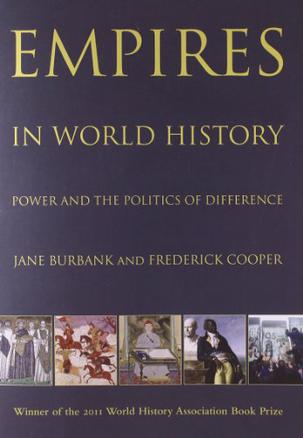
Empires in World History
Empires - vast states of territories and people united by force and ambition - have dominated the political landscape for more than two millennia. "Empires in World History" departs from conventional European and nation-centered perspectives to take a remarkable look at how empires relied on diversity to shape the global order. Beginning with ancient Rome and China and continuing across Asia, Europe, the Americas, and Africa, Jane Burbank and Frederick Cooper examine empires' conquests, rivalries, and strategies of domination - with an emphasis on how empires accommodated, created, and manipulated differences among populations. Burbank and Cooper examine Rome and China from the third century BCE, empires that sustained state power for centuries. They delve into the militant monotheism of Byzantium, the Islamic Caliphates, and the short-lived Carolingians, as well as the pragmatically tolerant rule of the Mongols and Ottomans, who combined religious protection with the politics of loyalty. Burbank and Cooper discuss the influence of empire on capitalism and popular sovereignty, the limitations and instability of Europe's colonial projects, Russia's repertoire of exploitation and differentiation, as well as the "empire of liberty" - devised by American revolutionaries and later extended across a continent and beyond. With its investigation into the relationship between diversity and imperial states, "Empires in World History" offers a fresh approach to understanding the impact of empires on the past and present. -
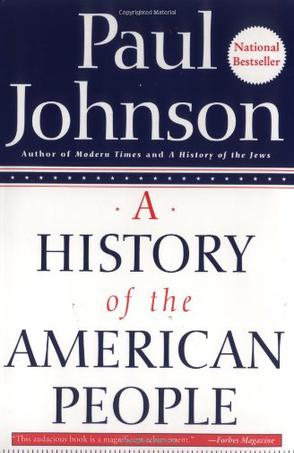
A History of the American People
"The creation of the United States of America is the greatest of all human adventures," begins Paul Johnson's remarkable new American history. "No other national story holds such tremendous lessons, for the American people themselves and for the rest of mankind." Johnson's history is a reinterpretation of American history from the first settlements to the Clinton administration. It covers every aspect of U.S. history--politics; business and economics; art, literature and science; society and customs; complex traditions and religious beliefs. The story is told in terms of the men and women who shaped and led the nation and the ordinary people who collectively created its unique character. Wherever possible, letters, diaries, and recorded conversations are used to ensure a sense of actuality. "The book has new and often trenchant things to say about every aspect and period of America's past," says Johnson, "and I do not seek, as some historians do, to conceal my opinions." Johnson's history presents John Winthrop, Roger Williams, Anne Hutchinson, Cotton Mather, Franklin, Tom Paine, Washington, Adams, Jefferson, Hamilton, and Madison from a fresh perspective. It emphasizes the role of religion in American history and how early America was linked to England's history and culture and includes incisive portraits of Andrew Jackson, Chief Justice Marshall, Clay, Lincoln, and Jefferson Davis. Johnson shows how Grover Cleveland and Teddy Roosevelt ushered in the age of big business and industry and how Woodrow Wilson revolutionized the government's role. He offers new views of Harding, Coolidge, and Hoover and of Franklin Roosevelt's New Deal and his role as commander in chief during World War II. An examination of the unforeseen greatness of Harry Truman and reassessments of Eisenhower, Kennedy, Johnson, Nixon, Reagan, and Bush follow. "Compulsively readable," said Foreign Affairs of Johnson's unique narrative skills and sharp profiles of people. This is an in-depth portrait of a great people, from their fragile origins through their struggles for independence and nationhood, their heroic efforts and sacrifices to deal with the `organic sin' of slavery and the preservation of the Union to its explosive economic growth and emergence as a world power and its sole superpower. Johnson discusses such contemporary topics as the politics of racism, education, Vietnam, the power of the press, political correctness, the growth of litigation, and the rising influence of women. He sees Americans as a problem-solving people and the story of America as "essentially one of difficulties being overcome by intelligence and skill, by faith and strength of purpose, by courage and persistence...Looking back on its past, and forward to its future, the auguries are that it will not disappoint humanity." This challenging narrative and interpretation of American history by the author of many distinguished historical works is sometimes controversial and always provocative. Johnson's views of individuals, events, themes, and issues are original, critical, and admiring, for he is, above all, a strong believer in the history and the destiny of the American people. -
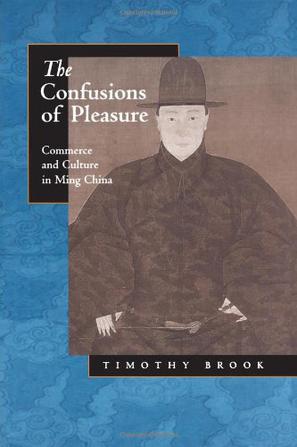
The Confusions of Pleasure
-
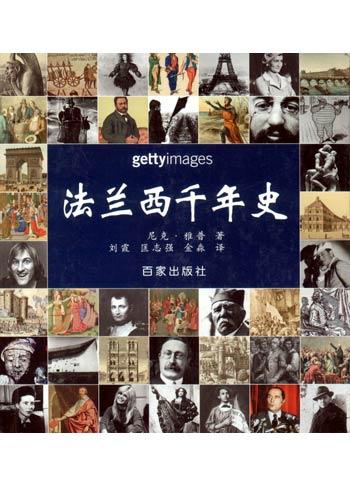
法兰西千年史
秩序和美感是法国献给世界的伟大礼物。前者是拿破仑时代的遗产,来势迅猛而又压倒一切。后者则是被逐渐奉献出来的——一连串的礼物,每一个都精致而时髦,其总和相当于地球上最丰富的珍宝矿藏。本书用1300多幅图片,从政治、战争、民族、文化等方面讲述了法兰西从11世纪初期至今的发生的重大事件和历史成就……(书中1300幅彩色片来自珍贵的中世纪手高、历史文献、绘画作品、新闻照片等) -
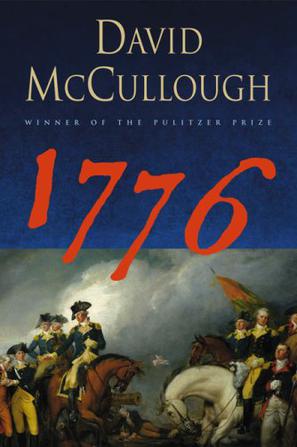
1776
From Publishers Weekly Starred Review. Bestselling historian and two-time Pulitzer winner McCullough follows up John Adams by staying with America's founding, focusing on a year rather than an individual: a momentous 12 months in the fight for independence. How did a group of ragtag farmers defeat the world's greatest empire? As McCullough vividly shows, they did it with a great deal of suffering, determination, ingenuity—and, the author notes, luck.Although brief by McCullough's standards, this is a narrative tour de force, exhibiting all the hallmarks the author is known for: fascinating subject matter, expert research and detailed, graceful prose. Throughout, McCullough deftly captures both sides of the conflict. The British commander, Lord General Howe, perhaps not fully accepting that the rebellion could succeed, underestimated the Americans' ingenuity. In turn, the outclassed Americans used the cover of night, surprise and an abiding hunger for victory to astonishing effect. Henry Knox, for example, trekked 300 miles each way over harsh winter terrain to bring 120,000 pounds of artillery from Fort Ticonderoga to Boston, enabling the Americans, in a stealthy nighttime advance, to seize Dorchester Heights, thus winning the whole city.Luck, McCullough writes, also played into the American cause—a vicious winter storm, for example, stalled a British counterattack at Boston, and twice Washington staged improbable, daring escapes when the war could have been lost. Similarly, McCullough says, the cruel northeaster in which Washington's troops famously crossed the Delaware was both "a blessing and a curse." McCullough keenly renders the harshness of the elements, the rampant disease and the constant supply shortfalls, from gunpowder to food, that affected morale on both sides—and it certainly didn't help the British that it took six weeks to relay news to and from London. Simply put, this is history writing at its best from one of its top practitioners.